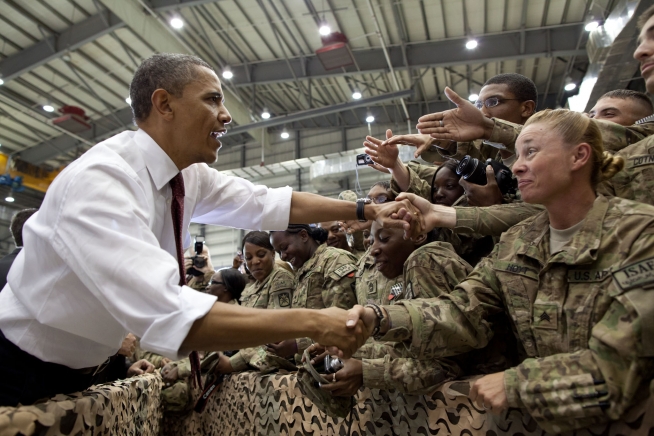
In anticipation for his book release next month, Vali Nasr is publishing harsh critiques of the Obama administration’s foreign policy (see earlier ones here and here). Nasr was at the State Department in Obama’s first term working on Afghanistan and Pakistan under Richard Holbrooke. His lengthy piece in Foreign Policy is excerpted from his forthcoming book and it confirms what many have speculated about Obama: shallow politics matter most.
The United States failed in Afghanistan, Nasr writes, because Obama made decisions for the sake of partisan politics rather than doing what was right or practical and in America’s interests.
Nasr writes that, “the president had a truly disturbing habit of funneling major foreign-policy decisions through a small cabal of relatively inexperienced White House advisors whose turf was strictly politics. Their primary concern was how any action in Afghanistan or the Middle East would play on the nightly news, or which talking point it would give the Republicans.”
Nasr reveals that “The Taliban were ready for talks as early as April 2009,” but the US military, along with the President’s political hacks, insisted on a troop surge instead of negotiations. “Obama was too skittish to try [negotiating with the Taliban],” and he “seemed to sense that no one would fault him for taking a tough-guy approach to Pakistan.”
The Taliban had certain demands going into negotiations, Nasr writes, but Washington could have used their willingness to talk to procure a pledge from the Taliban to cut ties with al-Qaeda and deny them operational sanctuary in Afghanistan. This scenario, mind you, would have made the troop surge – and all of the death and suffering that eventually did come of it – utterly moot. But Obama turned down the opportunity, opting instead for a war strategy all of the experts told him would fail.
This narrative is not new. David Rothkopf at Foreign Policy said as much last year, even going so far as to claim Obama himself opposed his own troop surge and didn’t believe in its efficacy. “So why did he do it?” Rothkopf asks. “The answer is that that Obama was leaving Iraq and could not afford to look weak in Afghanistan at the same time or he would come under political attack from the right.”
It’s truly the ultimate mark of the Hope & Change President to impose a war of choice on America and Afghanistan for the sake of his political reputation.
“It was to court public opinion that Obama first embraced the war in Afghanistan,” Nasr writes. “And when public opinion changed, he was quick to declare victory and call the troops back home. His actions from start to finish were guided by politics, and they played well at home.”
